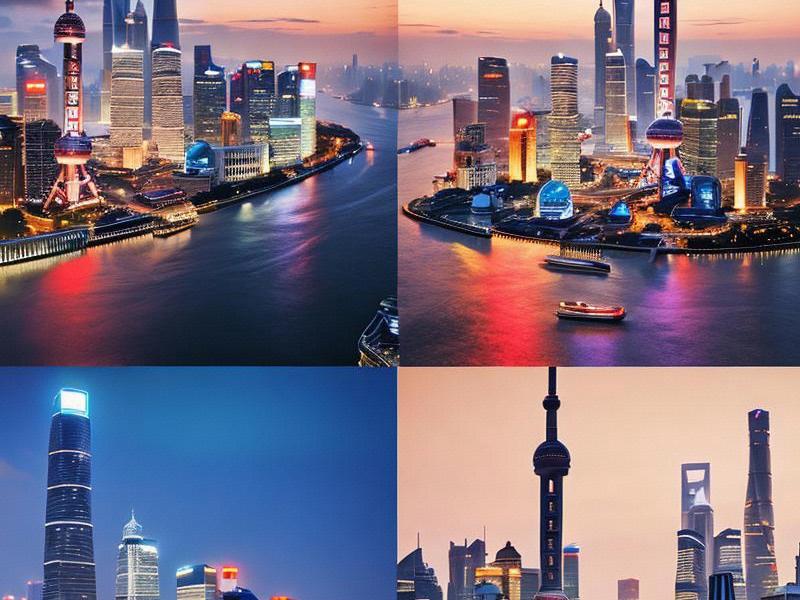This article delves into the dynamic city of Shanghai, exploring its rich cultural heritage, rapid urban development, economic growth, and the unique characteristics of its surrounding areas.

Shanghai, often referred to as the "Pearl of the Orient," stands as a beacon of modernity and tradition in China. This vibrant metropolis, located on the eastern coast of China, is not only the largest city in the country but also a global financial hub. Over the years, Shanghai has undergone remarkable transformations, blending its historical roots with cutting-edge urban development.
The city's history dates back to the 11th century when it was a small fishing village. However, it wasn't until the 19th century that Shanghai began to gain international prominence. The opening of treaty ports following the First Opium War allowed foreign powers to establish concessions in the city, leading to a significant influx of Western influence. This period saw the construction of iconic structures such as the Bund, a waterfront area lined with colonial-era buildings, which remains a symbol of Shanghai's cosmopolitan past.
Today, Shanghai is a city of contrasts. On one hand, it boasts futuristic skyscrapers like the Shanghai Tower, the tallest building in China and the second-tallest in the world. On the other hand, it preserves its rich cultural heritage through historic districts like the Old City and the French Concession. These areas are a testament to the city's diverse history and its ability to adapt and evolve.
One of the most striking aspects of Shanghai is its rapid urban development. The city has invested heavily in infrastructure projects, including the expansion of its metro system, which now boasts one of the most extensive networks in the world. This has facilitated seamless transportation for millions of residents and visitors alike. Additionally, the city has embraced green initiatives, with parks and green spaces integrated into its urban landscape. The iconic Century Park, for instance, offers a serene escape from the bustling city life.
上海龙凤千花1314
Culturally, Shanghai is a melting pot of influences. The city is renowned for its art scene, with galleries and museums showcasing both traditional Chinese art and contemporary works. The Shanghai Museum, located in People's Square, is a must-visit for art enthusiasts, featuring an impressive collection of ancient Chinese artifacts. The city's culinary scene is equally diverse, offering everything from traditional Shanghainese dishes like xiaolongbao (soup dumplings) to international cuisines.
Economically, Shanghai is a powerhouse. As one of the four direct-controlled municipalities of China, it plays a crucial role in the country's economy. The city is home to the Shanghai Stock Exchange, one of the largest in Asia, and is a major center for finance, trade, and logistics. Its free trade zone has attracted numerous multinational corporations, further cementing its status as a global economic hub.
Beyond the city limits, the surrounding areas of Shanghai offer a glimpse into the region's natural beauty and rural charm. The nearby Lake Taihu, one of the largest freshwater lakes in China, is a popular destination for water sports and sightseeing. The lake is surrounded by picturesque towns and villages, providing a tranquil retreat from the urban hustle and bustle.
上海龙凤419杨浦
The Yangtze River Delta, of which Shanghai is a part, is another area of interest. This region is known for its fertile land and abundant agricultural produce. The delta is also home to several UNESCO World Heritage sites, including the ancient water town of Zhouzhuang, famous for its canals and traditional architecture.
Tourism is a significant contributor to Shanghai's economy, attracting millions of visitors each year. The city's attractions range from historical landmarks like the Yu Garden and the Nanjing Road shopping district to modern marvels like the Shanghai Disneyland Resort. The resort, which opened in 2016, has become a favorite destination for families and theme park enthusiasts alike.
Despite its rapid development, Shanghai remains committed to sustainability. The city has implemented various measures to reduce pollution and promote environmental conservation. For example, the Huangpu River, which flows through the heart of the city, has undergone extensive cleanup efforts to improve water quality. Additionally, Shanghai has been investing in renewable energy sources and promoting green building practices.
上海娱乐
The people of Shanghai are as dynamic as the city itself. Known for their entrepreneurial spirit and adaptability, they have played a pivotal role in the city's success. The local dialect, Shanghainese, adds to the city's unique character, and the blend of cultures has created a vibrant social fabric.
In conclusion, Shanghai is a city that seamlessly blends the old with the new, offering a rich tapestry of experiences for its residents and visitors. From its historical landmarks to its futuristic skyscrapers, the city is a testament to China's remarkable journey of growth and transformation. The surrounding areas, with their natural beauty and cultural heritage, provide a complementary backdorpto the urban sprawl, making Shanghai and its vicinity a fascinating region to explore.
As Shanghai continues to evolve, it remains a symbol of China's aspirations and achievements. The city's story is one of resilience, innovation, and a deep connection to its past. Whether you're a history buff, a foodie, or a tech enthusiast, Shanghai has something to offer everyone, making it a must-visit destination in the 21st century.